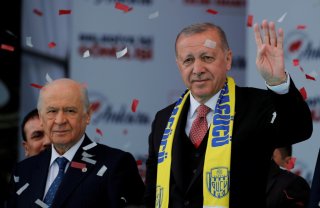Will Turkish Voters Chart a New Course in 2023?
As Turkey celebrates its centennial anniversary in 2023, can Turkish voters open a new chapter in the republic’s history?
While Kemal Kilicdaroglu, the CHP’s leader, is the most probable candidate, the opposition has not been able to declare a joint candidate for the presidential race. Delaying the decision could also indicate weakness since hesitancy refers to a lack of complete support for a candidate chosen without consensus.
Kurdish voters and the HDP have been critical actors in every election. They have become even more critical in Turkey’s politics since the 2015 general elections when the HDP secured 13 percent of the national vote for the first time in its history. That has made the HDP the second-largest opposition party in the National Assembly and a powerhouse in Turkey’s political life. The pro-Kurdish People’s Democratic Party (HDP) has not joined either of the People’s Alliances or Nation’s Alliances. But recently the HDP and five other minor left-wing political parties established a second opposition bloc, the “Labor and Freedom Alliance.” It’s not clear whether the new alliance will have a presidential candidate, but the alliance will be in a “key position,” especially in the presidential race.
While Erdogan tries to expand Kurdish voters’ support for AKP, he aims to divide the opposition by creating a sentiment that the main opposition bloc is colluding with the HDP, thereby supporting the PKK. In that way, Erdogan aims to sway more nationalist voters away from the opposition. But the opposition does not have the luxury of losing nationalist voters. On the other hand, excluding the HDP will jeopardize Kurdish support. So, the opposition bloc’s relations with the HDP are a double-edged sword, and they have no clear plan for the Kurds yet.
Erdogan’s unmitigated control over the system gives little room for the opposition to overturn the systemic obstacles and win the upcoming elections. His party has never faced defeat in general and local elections except in the 2015 general elections and last 2019 local elections when the AKP’s “invincibility” took a big blow. Recently, however, the odds have appeared to move against Erdogan as the economic crisis deepens. A potential Turkish military offensive in Syria could help Erdogan to gain more support—especially among nationalists. Yet these gains may still fall short of neutralizing Erdogan’s loss in public support due to the worsening economy.
Opposition-bloc parties have varying and sometimes contradicting priorities and goals. While differing priorities allow the opposition to appeal to different constituencies in the parliamentary elections, this also weakens the bloc’s unity in the presidential race. Joint statements and declarations do not influence the people who have been fed up with too much rhetoric without substance.
The opposition bloc needs to offer an alternative political discourse that addresses Turkey’s deeply rooted problems and, more importantly, puts forward a new direction for Turkey. Instead of falling behind Erdogan’s narratives, the opposition ought to formulate its own platform with policies that can effectively target real issues.
No matter who wins, the victor will have to endure a long and painstaking struggle to deal with Turkey’s mounting problems. If the AKP wins, it may face social unrest due to the economic downturn. If the opposition wins, the euphoria of victory may not last long. They will have to act swiftly to restore the parliamentary system and, as they have been constantly declaring, reinforce Turkey’s democracy, the rule of law, and the economy.
As Turkey celebrates its centennial anniversary in 2023, can Turkish voters open a new chapter in the republic’s history? It is unlikely, but not impossible.
Suleyman Ozeren, Ph.D., is a Professorial Lecturer at the School of Public Affairs at American University. He also serves as Senior Fellow at Orion Policy Institute in Washington, DC. He formerly served as the President of the Global Policy and Strategy Institute and the Director of the International Center for Terrorism and Transnational Crime (UTSAM) in Turkey. His research interest includes political violence, terrorism, conflict resolution, Kurdish issue, Turkish foreign policy, and US-Turkey relations.
Suat Cubukcu, Ph.D., is an Assistant Professor in the Department of Sociology, Anthropology, and Criminal Justice at Towson University (Maryland, USA), where he is also an affiliate faculty member in the Integrated Homeland Security Management program. He is also a Senior Fellow at Orion Policy Institute and specializes in the area of terrorism, policing, and media.
Image: Reuters.

